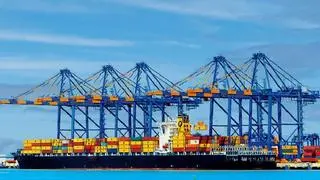BL Research Bureau
It was 540-odd days ago, that Bhushan Power & Steel was first admitted for insolvency proceedings under IBC on July 28, 2017. Not only has the case been in the system for double the time than what is mandated under IBC (270-day extended timeline), but the NCLAT’s order on February 4, that upholds JSW Steel’s bid for Bhushan Power & Steel, has stated that the period from May 7, 2018 till date, be excluded for the purpose of counting of the period of 270 days.
The case has once again put the much-touted time-bound IBC process under question. The time taken for interim litigations that is excluded from the overall process time, has led cases to drag on, defeating the purpose of IBC.
Further, the appellate tribunal observed — from the process document issued by the Resolution Professional in the insolvency process of Bhushan Power & Steel — that it was the prerogative of the Committee of Creditors (CoC) to update, amend, modify, add to, delay or otherwise annul or cease the ‘Resolution Process’ at any point in time. But any such provisions should be drawn from the Code rather than from individual process documents in each case, experts said.
Sequence of events
Tata Steel had challenged the order passed by the adjudicating authority (NCLT) on April 23, 2018, wherein the CoC was directed to also consider the resolution plan submitted by Liberty House Group Pte. Tata Steel’s appeal against the order was based on the ground that Liberty House had failed to participate and provide necessary documents within the timelines.
Subsequently, JSW Steel that had already submitted its resolution plan on February 8, 2018, submitted an improved bid on July 26, 2018, which Tata Steel objected to.
Despite the CoC giving opportunity to all three parties (Tata Steel, Liberty House and JSW Steel)to revise their bids on July 27, 2018, Tata Steel did not file an improved bid but challenged the CoC’s decision to consider improved bids.
On August 1, 2018, the NCLAT had again allowed submission of revised bids by all three bidders. While JSW Steel submitted an improved bid on August 13, 2018, Tata Steel continued to oppose the CoCs permitting a revised bid.
In its February 4, 2019 order, the NCLAT has finally upheld JSW Steel’s bid for Bhushan Power & Steel, as approved by 100 per cent voting share (since all those present in the CoC meeting voted in favour of the bid).
Delays: A cause for concern
The Bhushan Power & Steel matter, just as the Binani Cements case, re-affirms that in all such cases the priority of the NCLAT is to seek maximum value from resolution of stressed assets. JSW Steel’s revised bid of ₹19,700 crore was higher than Tata Steel's ₹17,000 crore and Liberty House's ₹18,500 crore.
While the intent of the Code is evidently to realise maximum value for all stakeholders, the to-and-fro in bids is a growing cause for concern. After all, a time-bound process that ensures that the economic value of the asset is better preserved, is equally imperative.
IBC (Amendment) Ordinance, 2018, had sought to ensure non-entertainment of late bids and no negotiation with the late bidders. The IBBI in its July 2018 amendment, had laid down model timelines for the various stages in the resolution process. For instance, the invitation of the Expression of Interest (EOI) must happen within 75 days of commencement of the insolvency process and the submission of the EOIs should happen within 90 days. None of these timelines appear to hold any sanctity.
In case of Bhushan Power & Steel, over 250 days of litigation spent on Tata Steel’s appeal will be excluded while counting the 270 day deadline under IBC.
Bankers have been batting for the ‘Swiss Challenge’ method under the IBC, wherein the highest bid in the first round becomes the base price. Other bids can be placed to counter this base bid in subsequent bidding. This could reduce litigation time, as it is becoming evident that extracting maximum value from resolution of stressed assets, is paramount.
Discretionary or mandatory
In the Bhushan Power & Steel matter, the NCLAT has in particular ruled that the CoC has the discretion to update, amend, modify, delay or cease the resolution process at any point in time. The NCLAT has drawn such inference from the process document issued by the Resolution Professional in the Bhushan Power & Steel matter, which is unusual.
“It is the Code that determines commencement as well as closure of the Corporate Insolvency Resolution Process. The quoting of the statement in process document that the CoC has absolute discretion and right to change, update, delay, or otherwise annul or cease the ‘Resolution Process’ at any point of time, are subject to provisions of the Code. The discretionary powers and right of CoC in any matter can be exercised only within the confines of the Code. For instance, COC can not delay or annul or cease the Resolution Process except following the due process of law,” says K S Ravichandran Managing Partner, KSR &Co Company Secretaries LLP.








Comments
Comments have to be in English, and in full sentences. They cannot be abusive or personal. Please abide by our community guidelines for posting your comments.
We have migrated to a new commenting platform. If you are already a registered user of TheHindu Businessline and logged in, you may continue to engage with our articles. If you do not have an account please register and login to post comments. Users can access their older comments by logging into their accounts on Vuukle.